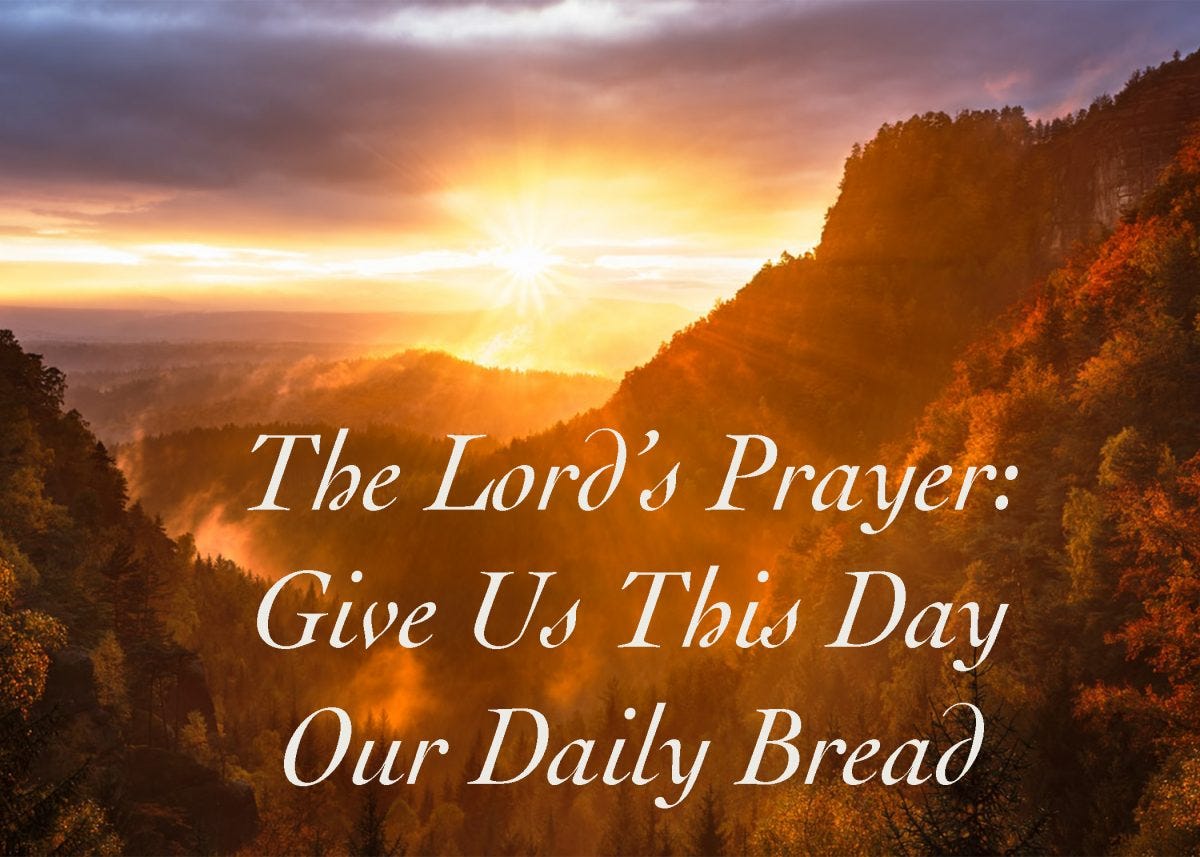Give Us This Day Our Daily Bread

It feels weird, doesn’t it? It’s Sunday morning. You are normally bustling around trying to get yourself and the children ready to go to worship, but you’re not. You are sitting at home, probably preparing to watch or having watched an online service. The normal handshakes, hugs, smiles, and conversations enjoyed week-by-week are glaringly absent from your life. Combined voices and instruments of praise are thunderously silent. You can hear the Scriptures preached through the wonders of modern technology—and that’s good—but it’s not the same. It almost feels you’re just watching another YouTube video. There is a noticeable distance. The bread and wine we share after joyfully declaring our peace with one another is absent. There can be no virtual communion. As Paul makes clear, we only fellowship in the Lord’s body and blood when we “come together” (1Cor 11.17ff.). We must be face-to-face as the church; no matter if we meet in smaller gatherings or as the entire local church at one time, our gathering together is necessary for the Lord’s Supper. Today, it is all sadly absent.
In a strange twist of ironic providence, in the Lenten series I am teaching on the Lord’s Prayer, I have arrived at the petition on this Sunday, “Give us this day our daily bread.” This petition recalls the faithfulness of God in the wilderness with his people as he provided the grain of heaven, angels’ food, for forty years (Ps 78.24-25). Being the bread of heaven, this manna was what we would call “sacramental.” It was “spiritual food” (1Cor 10.3). It not only provided for their daily physical needs of nutrition, but it also provided the psychological need for hope. Being bread from heaven, the children of Israel were getting a taste of their future. Heaven and its life are the pattern after which we are being molded. God provided this bread from heaven to give them hope and draw them into the future. Matthew’s record of Jesus’ words reflects this as the phrase “daily bread” translates a difficult phrase that could be understood as “give us tomorrow’s bread today.” The prayer for this supply from heaven looks toward our blessed hope, the glorious appearing of our God and Savior Jesus Christ (Titus 2.13), the time when we all gather for the great kingdom feast.
Yet today we experience a sacramental famine. This is not unprecedented in the history of God’s people. Proper sacramental meals were taken away when the Tabernacle was destroyed by the Philistines and when the Temple was destroyed by the Babylonians. The people of God have experienced various exiles through the years that have kept them from enjoying festive communion.
Because there are times when this happens in history, God provided Psalms such as 42–43 that speak of a longing to be back with the people of God to stand before God keeping festival. As these Psalms indicate, for the person who loves God, these are painful times of separation. However, we are to endure them in hope. God will restore us.
While we are here, knowing that our heavenly Father loves us and is always meeting our needs, never giving us serpents when we ask for fish or scorpions when we ask for eggs (Lk 11.11-12), always giving us what we ask for or something better, we must ask, “What needs are being met at this time of sacramental famine?” I can’t give exhaustive answers to this, of course, but maybe I can set you on a trail that will lead you to some deeper meditation on the issue.
What if our heavenly Father is using this time to reveal to us just how much we take for granted with his daily and weekly blessings. Maybe you are grateful, but he may want to deepen your gratitude. Maybe you take too many things for granted, and he wants to reveal to you just how dependent you are on his mercies being new every morning.
What if one of those things you take for granted is the week-to-week gathering of the church. It will always be there, you think. Sometimes you take something of nonchalant or even a lazy approach to worship. Maybe God is using this time to resurrect or deepen your hunger for what is central to your life and the life of the people of God as a whole so that you can truly sing with the Psalmist, “As the deer pants for flowing streams, so my soul pants for you, O God … When shall I come and appear before God?”
Are needs run deep. In all of God’s providence, he is meeting our most profound needs. He is doing so now, even in this time of disruption. What are the needs our Father is meeting in your life?
The post Give Us This Day Our Daily Bread appeared first on Kuyperian Commentary.

